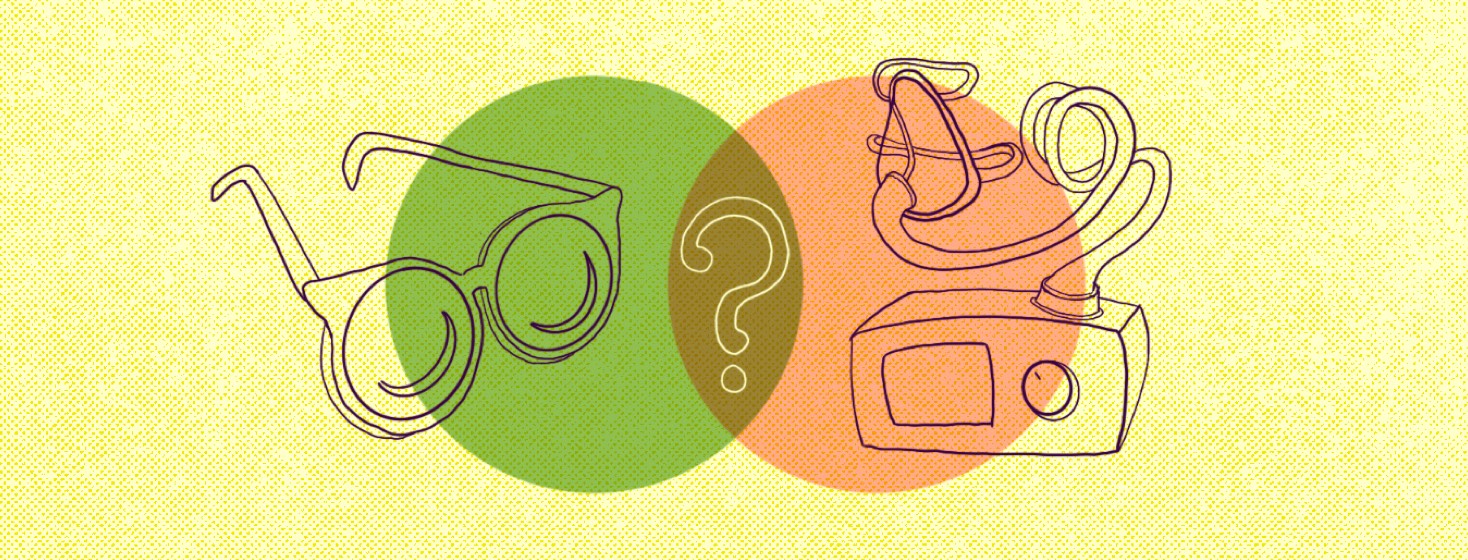What Do Glasses and CPAP Have In Common?
What do glasses and CPAP have in common? Both correct the condition, not cure it.
Thanks to what I call the genetic roll of the dice, I inherited sleep apnea and really bad eyesight from my parents. Not to mention other health conditions, thankfully, I am able to manage with diet and lifestyle. I've only been using CPAP (continuous positive airway pressure) to treat my sleep apnea for about 6 years now and recently I went for a retest to renew my prescription. What, then, do glasses and CPAP have in common?
This or That
Do you have sleep apnea and also wear glasses?
I was hoping to be told that my severe obstructive sleep apnea has improved. However, I set myself up for a big letdown. My results were still the same. Needless to say, that was a big disappointment because I did the number 1 thing that doctors advise when you have sleep apnea: lose weight.
So that's the first similarity between glasses and CPAP – both only correct the condition while being used. They certainly don't cure them. When I first started wearing glasses, I tried to not wear them sometimes, hoping that my eyes would improve on their own. Forty years later, I still wear glasses when I'm not sleeping or in the shower.
Lifestyle changes alone are not the answer
Just like eating tons of carrots doesn't change the shape of the eyeball, losing weight alone doesn't change the underlying cause of sleep apnea for most people. Don't get me wrong, losing weight is good for overall health, but not necessarily the solution to sleep apnea.
The combination of lifestyle changes and using my CPAP every night has definitely had a lot of positive impacts on my life. For example, I don't go through my days in a fog anymore. I certainly don't feel extremely sleepy during the day. Additionally, my energy levels are up so that I can enjoy doing things that make me happy and be present for my loved ones.
Other things glasses and CPAP have in common
- One is always on my face: glasses off, CPAP mask on; CPAP mask off, glasses on.
- They can both be found on my nightstand.
- Both definitely need daily cleaning.
- I need both to function on a daily basis.
- Both require testing, fitting, adjustment, and a prescription.
- Both are expensive and insurance only covers 80% of the cost (in Canada).
- I have a love-hate relationship with both, but I've learned to live with them.
Only long term solution is surgery
For many, there is a long term solution to both bad eyesight and sleep apnea: surgery. Laser eye surgery has come a long way in terms of permanently correcting vision problems. Unfortunately, I am not a candidate for laser eye surgery because my corneas are too thin.
I've also been hearing more and more about surgery for sleep apnea. However, that kind of surgery is not currently available in Canada.
So in conclusion, I've learned to accept the diagnosis for my severe obstructive sleep apnea (OSA) and severe near-sightedness. Most of all, I'm grateful to be living in a country where the corrective treatment I need for both conditions is accessible.
What other conditions do you have in addition to sleep apnea? Please share a comment with our community.

Join the conversation